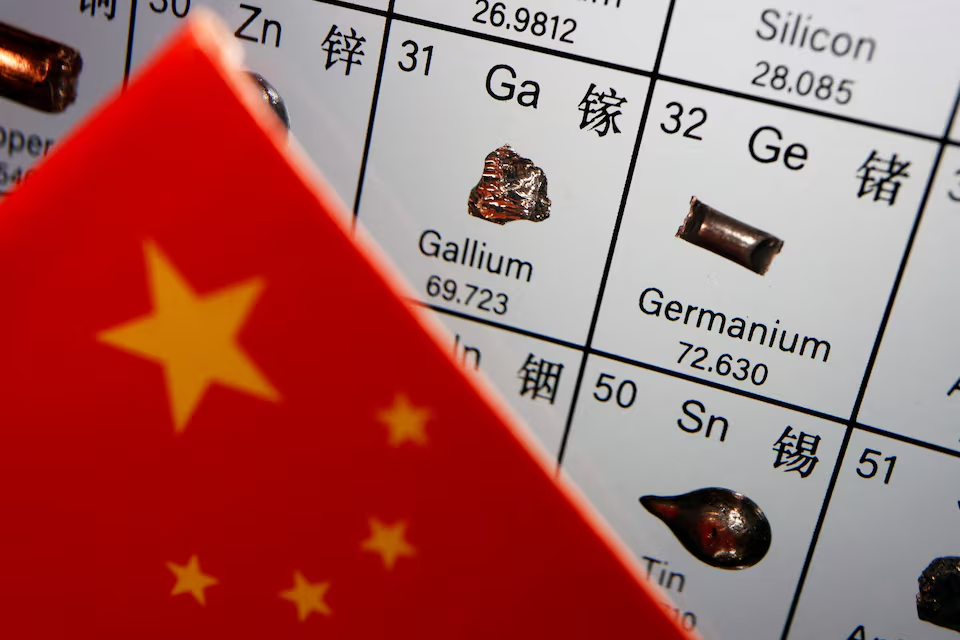How US Buyers Bypass China’s Critical Minerals Export Ban

BEIJING, July 9, 2025 — Despite China’s official ban on critical mineral exports to the United States, American importers are continuing to access materials like antimony, gallium, and germanium through alternative supply routes. Customs data and shipping records reviewed by Reuters reveal a growing pattern of transshipment through third countries, mainly Thailand and Mexico, allowing U.S. companies to bypass the restrictions.
Antimony Imports Surge From Thailand and Mexico
Since China banned exports of critical minerals to the U.S. in December 2024, U.S. imports of antimony oxides from Thailand and Mexico have skyrocketed. From December to April alone, the U.S. imported 3,834 metric tons, more than the previous three years combined.

According to Chinese customs data, both Thailand and Mexico became top export destinations for Chinese antimony by May 2025. Yet, neither country mines significant volumes of antimony, and each operates only one smelter—raising questions about the true origin of the material.
Chinese-Owned Thai Firms Fuel U.S. Supply Chain
Shipping records show Thai Unipet Industries, a Thailand-based subsidiary of Chinese antimony producer Youngsun Chemicals, has played a key role. Between December and May, the company exported 3,366 tons of antimony products to the U.S., nearly 27 times its volume from the same period a year earlier.
The buyer: Youngsun & Essen, a Texas-based importer previously reliant on direct shipments from Youngsun Chemicals before Beijing’s ban.
“It’s a pattern we’re seeing, and it’s consistent,” said Ram Ben Tzion, CEO of logistics tech firm Publican. “Chinese companies are super creative in bypassing regulations.”
Legal Grey Zones and Enforcement Gaps
Chinese law requires export licenses for strategic minerals and penalizes transshipment, with violations punishable by fines, bans, or prison. However, experts say enforcement lags behind policy.
“Having all these policies in place is one thing, but enforcement is a completely different scenario,” Ben Tzion added.
U.S. buyers are not breaking any domestic laws when purchasing Chinese-origin antimony, gallium, or germanium if routed through a third country. In fact, U.S. Commerce Department regulations do not currently bar such purchases, creating a legal loophole.
How the Bypass Works
Importers use shipping agents in China to buy materials, which are then re-labeled (as “zinc,” “iron,” or even “art supplies”) and routed through Asian countries. According to Levi Parker, CEO of Gallant Metals, these routes allow him to import about 200 kg of gallium per month, though costs and risks remain high.
“I’d like to import more, but large shipments attract attention,” Parker said.
Strategic Implications for Global Trade
This workaround reflects the global scramble for critical minerals, essential to sectors like semiconductors, telecommunications, EVs, and military tech. As China and the U.S. compete for technological dominance, these materials are increasingly weaponized in trade policy.
While China’s gallium and germanium exports are still below pre-ban levels, U.S. demand remains strong, pushing prices for all three minerals to record highs.
“Big profits await anyone willing to take the risk,” said James Hsiao, partner at White & Case in Hong Kong.
Beijing’s Dilemma: Control vs. Enforcement
China’s Commerce Ministry admits that foreign and domestic actors are evading the export ban. It recently launched a campaign against transshipment and smuggling, but industry insiders say enforcing these controls on a global scale is nearly impossible.
Until stricter enforcement is achieved or U.S. policy changes, critical minerals will continue to flow into the U.S. via indirect routes—illustrating the complex dynamics of global supply chains in the era of strategic trade warfare.
For author: Staff Writer
Courtesy of: Forbes
Source: Reuters
: 377







